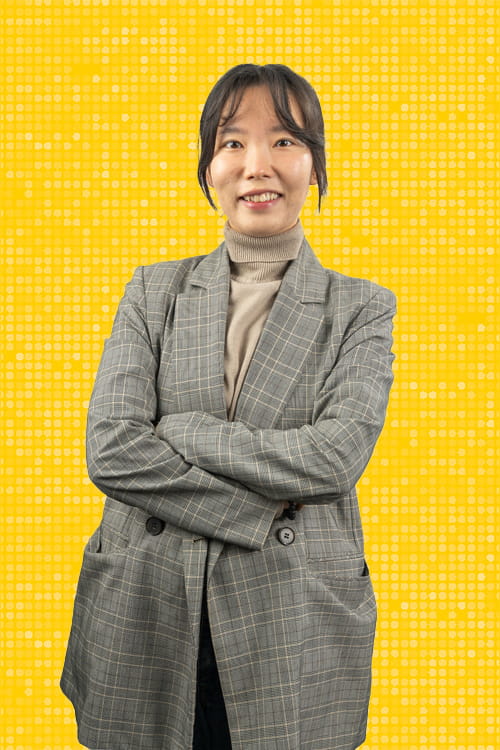
Sora Kim, PhD student, literacy, culture, and language education
Speaks to inclusive Korean learning
“Ms. Kim’s drive to conduct an independent research project with the Stanley Foundation Award in her first summer in her doctoral program was amazing – and the work product that came out of it was equally rigorous and important.” -Pamela Wesely, professor of multilingual education
Hometown: Seoul, South Korea
Faculty mentor/advisor: Pamela Wesely, PhD, associate dean and professor of multilingual education, College of Education
What is your degree program and anticipated graduation date? PhD in literacy, culture and language education (LCLE), May 2026
Please describe your research: My research interest covers critical teaching methods in Korean as foreign/second language education, bilingual education policy in South Korea and the United States, and the representation of teacher/student identities in the world language classroom. Given the multitude of interacting power discourses that often override one another, my focus is on cases where teachers’ and students’ marginality challenge existing dominant narratives about language and power. For example, my pilot projects have addressed questions like why native-speakerism loses its power as a language ideology that favors native-speaker status in Korean as a Foreign Language(KFL) classrooms, or how a Korean as a Second Language (KSL) teacher could deviate from the Korean government’s assimilationist educational policy while respecting and incorporating students’ linguistic repertoire and cultural resources.
In simple terms, why does this research matter? Many practitioners and researchers have begun to question the applicability of existing theories regarding students’ learning motivation to present-day Korean language classrooms. We need to consider that Korean as a world language has a distinct position, history, and challenges for students attending U.S. universities, especially compared to European languages. In this era of globalization and digitalization, I am also particularly interested in how teachers and students who have been underrepresented could thrive and enrich intercultural understanding in language classrooms.
How soon after starting at the University of Iowa were you able to participate in research? My first research experience was through Stanley International Research Award, and it was last summer when I finished my first year in PhD program. I was the principal investigator in my teacher interview project in South Korea, and I was able to participate and plan it so early because I had been trained to understand and conduct educational research during my master’s program at the University of Iowa. So I guess it took three years for me to begin my research journey.
How has being involved in research made you more successful at the University of Iowa? The teacher interview data helped me so much to engage not only with courses I took after the project, but also with conferences I attended and presented. The whole process including writing for grants and IRB approval was valuable as well because it helped me to elaborate why this research is needed for the field and how it will not harm human subjects involved in the research. Now I am writing a paper based on the data analysis, hopefully to be published at a journal.
Banner location: Downtown—
